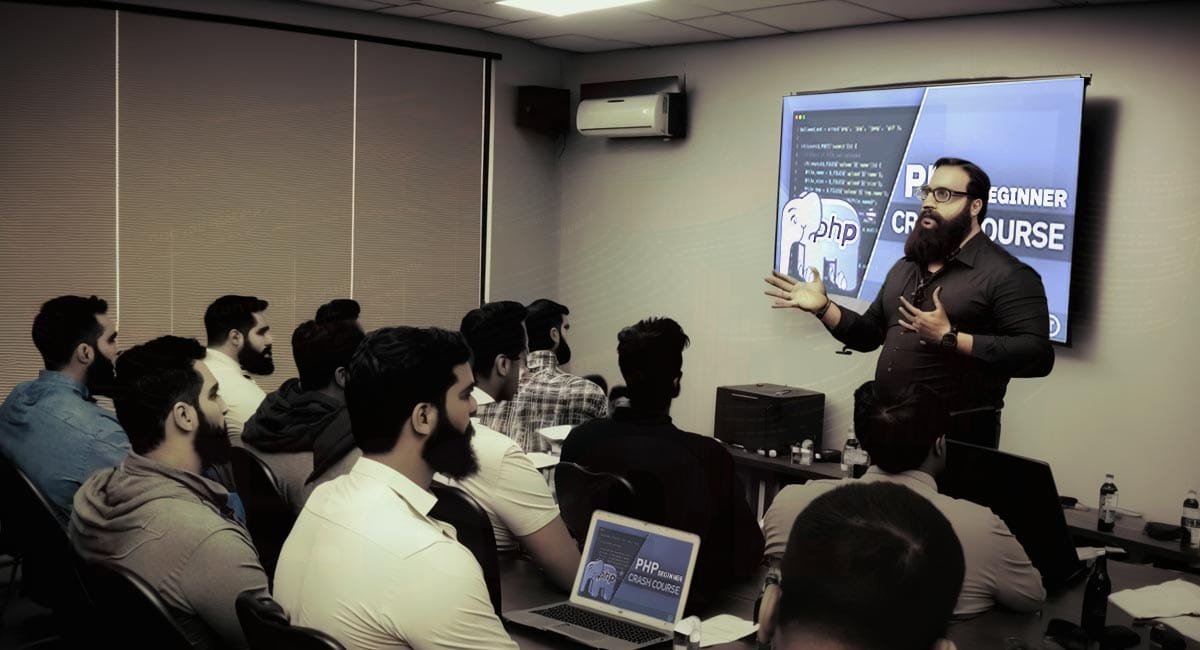There are several options for learning PHP, including online courses, tutorials, books, and in-person training programs. Here are a few popular options:
- Online courses: There are many online platforms such as Udemy, Coursera, and LinkedIn Learning that offer PHP courses for beginners and advanced users. These courses are self-paced and can be taken from anywhere with an internet connection.
- Tutorials: There are a wealth of tutorials available online, many of which are free. Websites such as w3schools, PHP.net, and Codecademy offer interactive tutorials that can be a great way to learn the basics of PHP.
- Books: There are many books available on PHP, both in print and as e-books. Books such as “PHP and MySQL Web Development” by Luke Welling and Laura Thomson, and “PHP: The Complete Reference” by Steven Holzner are considered to be good resources for learning PHP.
- In-person training programs: Some schools and institutions offer in-person PHP training programs. These can be a good option for those who prefer a more structured learning environment and the opportunity to learn from an experienced instructor.
- Bootcamps: Bootcamps are intensive, short-term programs that focus on a specific skill set. Some bootcamps offer programs specifically for PHP and related technologies such as Laravel,Symfony, etc.
The best approach to getting your PHP education will depend on your individual needs and learning style. However, here are a few general tips that can help you get started:
- Start with the basics: If you are new to PHP, it is important to start with the basics and build your knowledge gradually. Learn about data types, variables, loops, functions, and the basics of web development such as HTML, CSS, and JavaScript.
- Practice, Practice, Practice: Practice is essential to mastering any programming language. Try building small projects and experimenting with different features of PHP. Participate in coding challenges, hackathons, or build something on your own.
- Learn by example: Look at existing PHP code and try to understand how it works. Read other people’s code, and try to understand how they solved a particular problem.
- Learn by doing: Building a web application or a small project is the best way to learn PHP. Try to build a simple CRUD application, a simple e-commerce application, or a simple CMS.
- Join a community: Joining a community of PHP developers is a great way to learn and get help. Join a PHP user group, a slack channel, or a forum, where you can ask questions and get feedback from experienced developers.
- Learn about best practices: Learn about best practices, design patterns, and security concerns. This will make your code more readable, maintainable, and secure.
- Keep updated: PHP is constantly evolving, so it’s important to keep updated with the latest developments and best practices.
The best approach is to find a method that works for you and stick to it. Whether it’s through online tutorials, in-person training, or a combination of different methods, the key is to be consistent and practice regularly.
And finally regardless of the learning method, practice is key to mastering PHP. You should practice as much as possible, and try building small projects or contributing to open-source projects.
I am a huge enthusiast for Computers, AI, SEO-SEM, VFX, and Digital Audio-Graphics-Video. I’m a digital entrepreneur since 1992. Articles include AI assisted research. Always Keep Learning! Notice: All content is published for educational and entertainment purposes only. NOT LIFE, HEALTH, SURVIVAL, FINANCIAL, BUSINESS, LEGAL OR ANY OTHER ADVICE. Learn more about Mark Mayo






